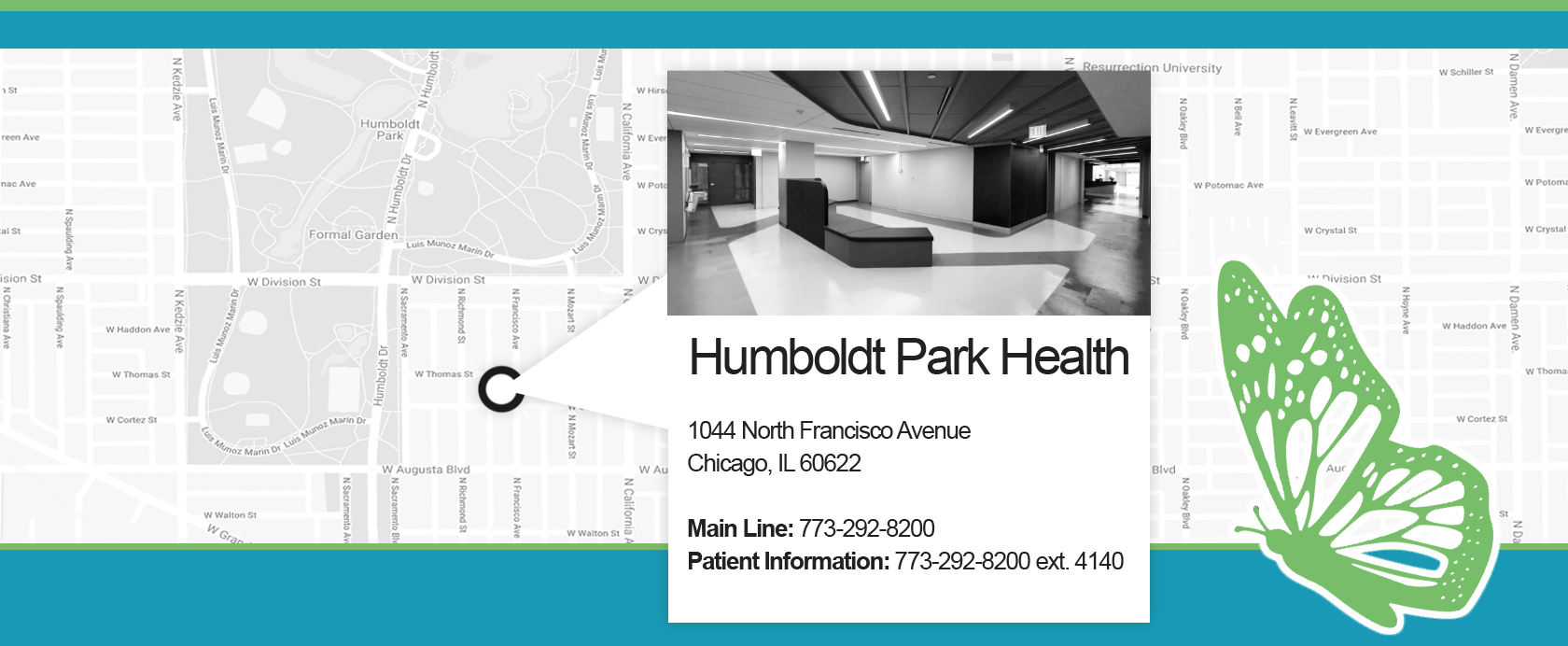Humboldt Park Health supports and protects the basic human civil, constitutional and statutory rights of each of our patients. The exercise of patient rights provides for:
- Impartial access to treatment, regardless of race, religion, sex, sexual orientation, ethnicity, age, or handicap.
- The receipt of care or treatment in the hospital without coercion, discrimination, or retaliation.
- Participating in the development and implementation of his or her plan of care.
- Having a family member or representative of his or her choice and his or her own physician notified promptly of his or her admission to the hospital.
- Receiving care in a safe setting.
- Being free from all forms of abuse or harassment.
- A surrogate (parent, legal guardian, person with medical power of attorney) to exercise your rights when you are unable to do so, without coercion, discrimination, or retaliation.
- Written information about your rights in advance of receiving treatment or discontinuing your care.
In addition to these rights, you also have the right to:
- Considerate and respectful care.
- Be well informed about your illness, possible treatment and likely outcome and to discuss this information with your doctor. You have the right to know the names and roles of people treating you.
- Consent or refuse a treatment, as permitted by law, throughout your hospital stay. If you refuse a recommended treatment, you will receive other needed and available care.
- Have an Advance Directive, such as Living Will or Durable Power of Attorney. These documents express your choices about your future or name someone to decide if you cannot speak for yourself. If you have a written Advance Directive, please provide a copy to the hospital, your family and your doctor.
- Expect that treatment records are confidential unless you have given permission to release information or reporting is required or permitted by law. When the hospital releases records to others, such as insurers, it emphasizes that the records are confidential.Review your medical records and have the information explained, except when restricted by the law.
- Expect the hospital will give you necessary health services to the best of its ability.Treatment, referral or transfer may be recommended. If transfer is recommended or requested, you will be informed of the risks, benefits and alternatives. You will not be transferred until the other institution agrees to accept you.
- Privacy. The hospital, your doctor and others caring for you will protect your privacy as much as possible.Know if this hospital has relationships with outside parties that may influence your treatment and care. These relationships may be with educational institutions, other healthcare providers or insurers.
- Consent or decline to take part in research affecting your care. If you choose not to take part, you will receive the most effective care the hospital otherwise provides. Be told of realistic care alternatives when hospital care is no longer appropriate, and to access the ethics committee.
Your Rights and Responsibilities as a Hospital Patient:
- Receive treatment without discrimination on the basis of race, religion, sex, sexual orientation, ethnicity, age, handicap, or source of payment. This includes the right to meaningful communication. If necessary, the hospital will make every effort to provide interpreters when you have difficulties communicating with the staff.
- To file a complaint (grievance). You have the right to receive a prompt resolution. The nurse will assist you or call the hospital operator. Presentation of a grievance will not compromise your future access to care.
- To receive, as part of the resolution of a grievance, a written notice outlining the steps taken on your behalf to investigate the grievance, the results of the grievance process and the date of completion of the process.
- Discuss pain relief management and education with your doctor and nurse. You are encouraged to be involved in your medical care. Expect appropriate information pain prevention and management.
- Informed consent of donation of organs and tissues.
You have the responsibility to:
- Provide information about your health, including past illness, hospital stays, and use of medicine.
- Ask questions when you do not understand information or instructions. If you believe you cannot follow through with your treatment, you are responsible for telling your doctor.
- Be considerate of the needs of the other patients by allowing roommates their privacy, limiting visitors, observing hospital rules, and controlling interruptions of noise and light.
- Provide information regarding insurance and for working with the hospital to arrange payment when needed.
Humboldt Park Health Complaint Procedure
If you have a complaint about your care or treatment at Humboldt Park Health, we are available anytime to discuss your concerns. The Nurse Supervisor on duty, the Manager of the Patient Experience, or the Vice-President of Patient Care are available to help our patients and may be reached by telephone by dialing “0” on any in-house telephone or in writing at: Humboldt Park Health, 1044 North Francisco Avenue, Chicago, IL 60622. (The nursing supervisor is available evenings, nights and weekends.) If you are unable to resolve your complaint in this manner, contact the Illinois Department of Public Health’s 24-hour, toll free Central Complaint Registry at 1-800-252-4343 or TTY (hearing impaired use only) 1-800-547-0466 or contact The Joint Commission at 1-800-994-6610 or complaint@jointcommission.org.
Or you may write to one of the following organizations:
Illinois Department of Public Health
Division of Health Care Facilities and Programs
525 W. Jefferson St.
Springfield, IL 62761-0001
Fax: 1-217-782-0382
Office of Quality Monitoring
The Joint Commission
One Renaissance Boulevard
Oakbrook Terrace, IL 60181
Fax: 1-630-792-5636
The posting of this information is required by the Hospital Licensing Act, 210 ILCS 85/6.14c.(2) and The Joint Commission Participation Requirements.


